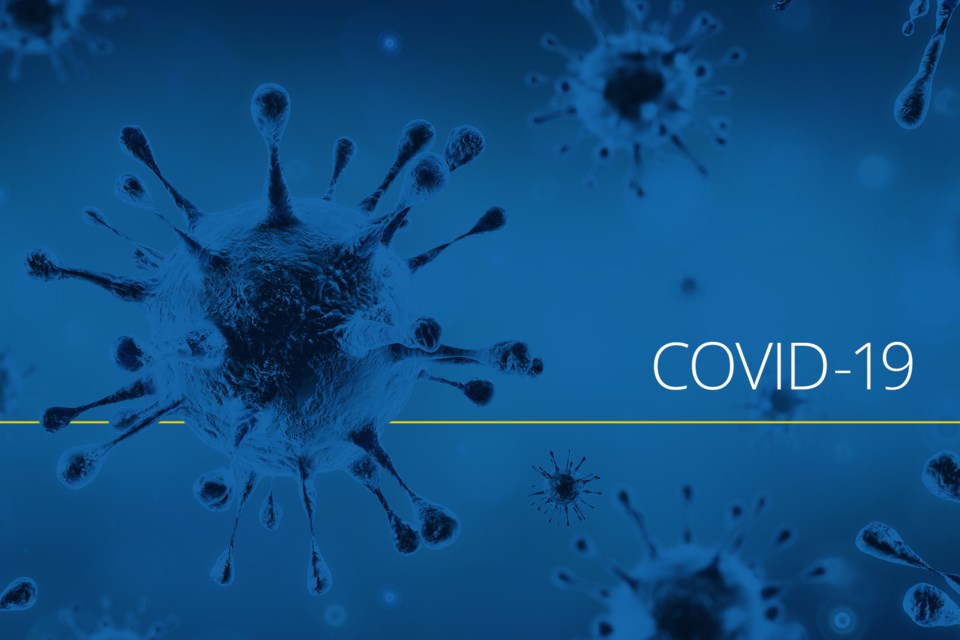The number of confirmed COVID-19 cases of the faster spreading U.K. variant in York Region has jumped from 15 to 39 — three are in Newmarket — with the majority acquired by community spread.
The cases are linked to 24 households, with only six directly linked to exposure to individuals who travelled internationally, York Region medical officer of health Dr. Karim Kurji said in an online update today, Feb. 1.
The variant strain, identified as B.1.1.7, is present in "virtually all groups" and confirmed in six the region's nine municipalities, he said.
"In other words, it is circulating amongst our residents, and is probably here to grow," Kurji said.
In total, there are: three cases in Newmarket, four cases in King, four cases in Georgina, five cases in Richmond Hill, 11 cases in Markham and 12 cases in Vaughan, the region's hotspot for COVID-19 throughout the pandemic.
Last week, York Region Public Health confirmed a Newmarket man in his 30s acquired the variant strain by local transmission.
The rapid pace and growth of the variant is visible in the increase from 15 to 39 confirmed cases within a week. Of the 15 cases confirmed Jan. 25, at least nine were acquired by local transmission.
On Jan. 12, seven variant cases had been confirmed in York Region.
Only 10 of the 39 variant cases in the region are currently active, according to a statement by York Region director of corporate communications Patrick Casey.
Some of the individuals newly confirmed with a variant case are being urged to isolate at the region's new COVID-19 isolation centre, Kurji said.
None of the individuals have been hospitalized and no fatalities are associated with the cases.
The sources of transmission are: 10 are local transmission; 10 close contact in a household; eight close contact; five close contact non-household; and six travel, Casey said.
The breakdown in age groups is: 5 to 9 three cases; 20 to 34 nine cases; 35 to 44 five cases; 45 to 54 six cases, 55 to 64 nine cases, and 65 to 79 seven cases.
"We have not received notification of any confirmed cases of the B.1.1.7 variant in long-term care homes in York Region," Casey said.
"Many jurisdictions with the variant have had explosive and exponential growth," said Kurji. "Some of the experts in the U.S. believe that the variant will become the dominant form of the COVID-19 virus by the end of March."
He said the virus tends to peak faster and last longer, with shorter incubation periods and faster transmission.
"The province, through the public health labs, will be testing all specimens of COVID-19 (for the variant) beginning this week, so we expect to be finding more cases of the variant," Kurji said.
Today, Public Health Ontario confirmed 69 U.K. variant cases in the province.
The border restrictions implemented by the provincial and federal government are crucial to reducing the COVID-19 cases and variant cases, he added.
On Jan. 29, 2021, the Ontario government announced a new six-point plan including:
- Effective Feb. 1, mandatory on-arrival testing for international travellers at Toronto Pearson International Airport
- Effective Feb. 3, enhanced screening and sequencing: led by Public Health Ontario (PHO), the provincial diagnostic lab networking is ramping up capacity to screen all positive COVID-19 tests in Ontario for known variants within two to three days of initial processing
The rapid increase in variant cases reinforces the need for everyone to stay home, limit trips outside of your home for essential reasons only and continue following all public health advice, Casey said.
"We are very concerned about the U.K. variant in circulation within York Region," Casey said. "It is important to curb this COVID-19 variant spread as quickly as we can. We are expeditiously contacting the close contacts of the cases in order to ensure there isn’t any unwitting transmission happening."
If you have been in contact with a confirmed case of COVID-19, regardless of which strain the virus is, it is essential you stay home and self-isolate for 14 days.
For more information on COVID-19 in York Region visit york.ca/covid19
